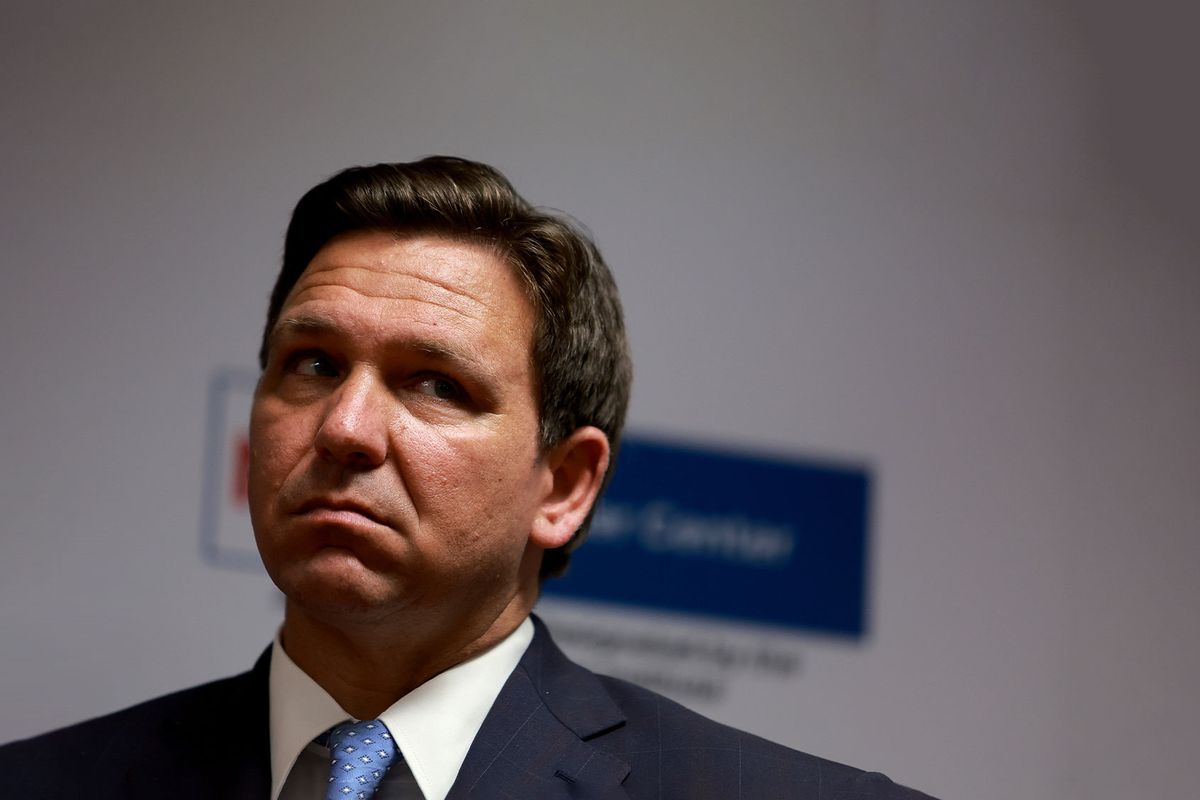On Tuesday, the Tampa Bay Times released body camera footage of local police carrying out one of the well-publicized arrests Gov. Ron DeSantis, R-Fla., ordered for "illegal" voting — and police themselves appearing unsure and "almost apologetic" as they explained to one voter, Tony Patterson, that he was under arrest.
"Body-worn camera footage recorded by local police captured the confusion and outrage of Hillsborough County residents who found themselves in handcuffs for casting a ballot following investigations by Gov. Ron DeSantis' new Office of Election Crimes and Security," writes the Tampa Bay Times.
In the video, Patterson can be seen protesting police for arresting him even though he received a notice from the state telling him he was eligible to vote despite his past felony conviction.
"'What is wrong with this state, man?" Patterson said at one point. 'Voter fraud? Y'all said anybody with a felony could vote, man."
In another case, noted the report, "Romona Oliver, 55, was about to leave for work when police walked up her driveway at 6:52 a.m. and told her they had a warrant for her arrest... an officer told her she was being arrested for fraud, a third-degree felony, for voting illegally in 2020."
"Voter fraud?" Oliver said in the video. "I voted, but I ain't commit no fraud."
The crackdown, part of DeSantis' initiative to guarantee "election integrity" as the GOP was spreading conspiracies about the 2020 election being stolen, resulted in 20 arrests, which DeSantis triumphantly championed at a press conference in August — but questions immediately emerged about the project.
Florida's Amendment 4, approved by voters in 2018, undid one of the strictest felony disenfranchisement regimes in the country, giving hundreds of thousands of people who had been permanently disenfranchised by a prior conviction their voting rights back — but some felonies like murder and sex offenses were excluded, and the GOP legislature subsequently narrowed the restoration even further by requiring rehabilitated ex-convicts pay back all fines and fees, even those that weren't part of their initial sentence.
In theory, local officials should have simply stopped the 20 ex-convicts who were ineligible to vote from registering at all, preventing any election crime from happening. It later emerged that despite state election workers having a responsibility to advise people of whether they have a right to vote, most of these 20 people had no idea they weren't eligible to vote. DeSantis' elections chief specifically told local officials they bore "no fault" for not instructing them otherwise, even as the governor's office publicly blamed them for the confusion.
Watch the footage below or at this link.




Shares